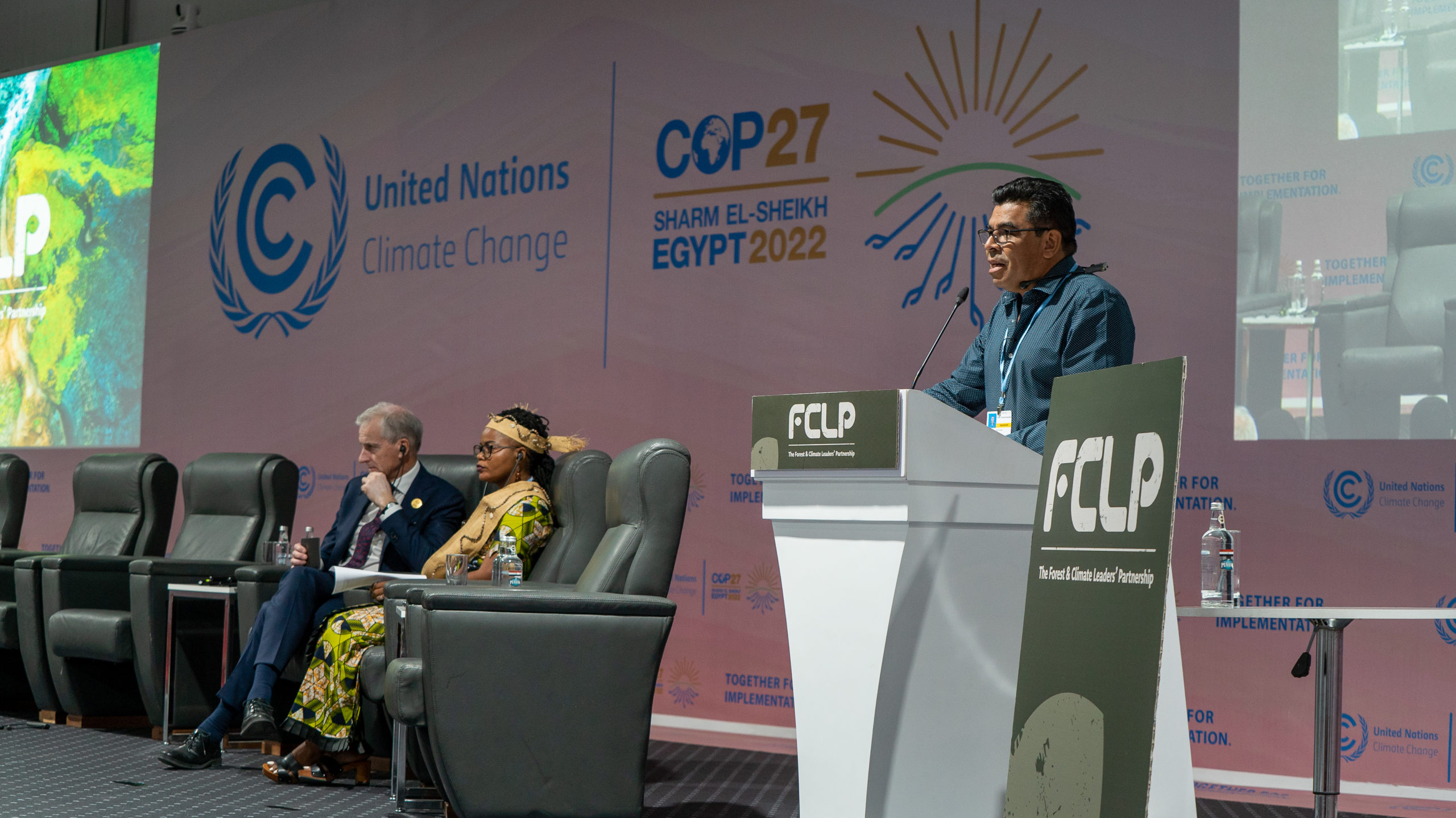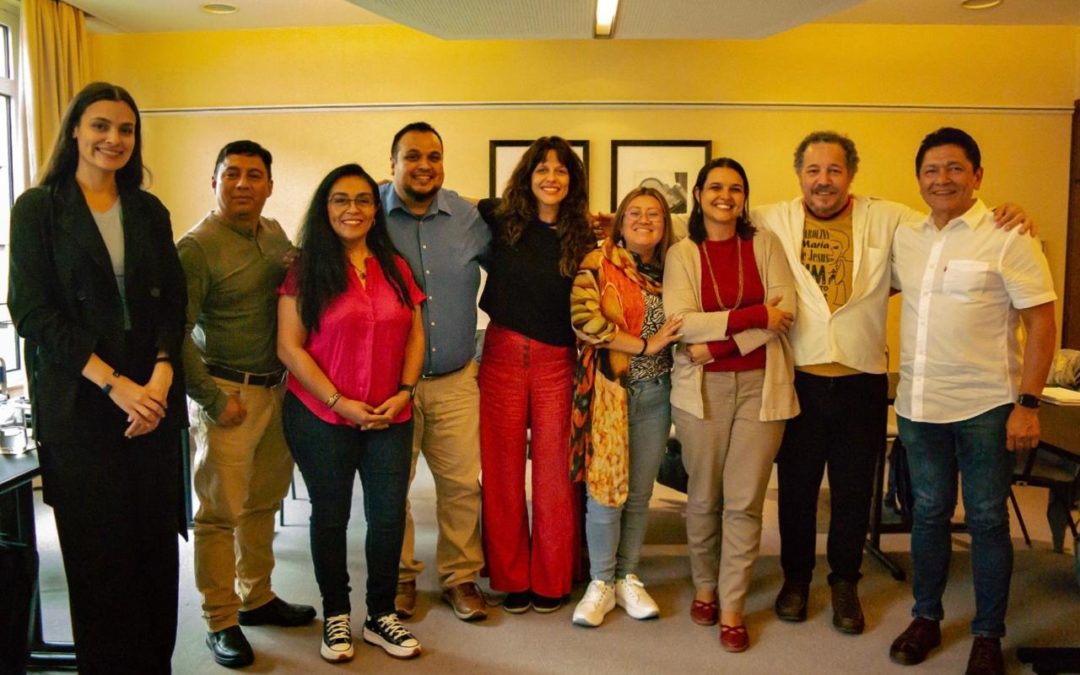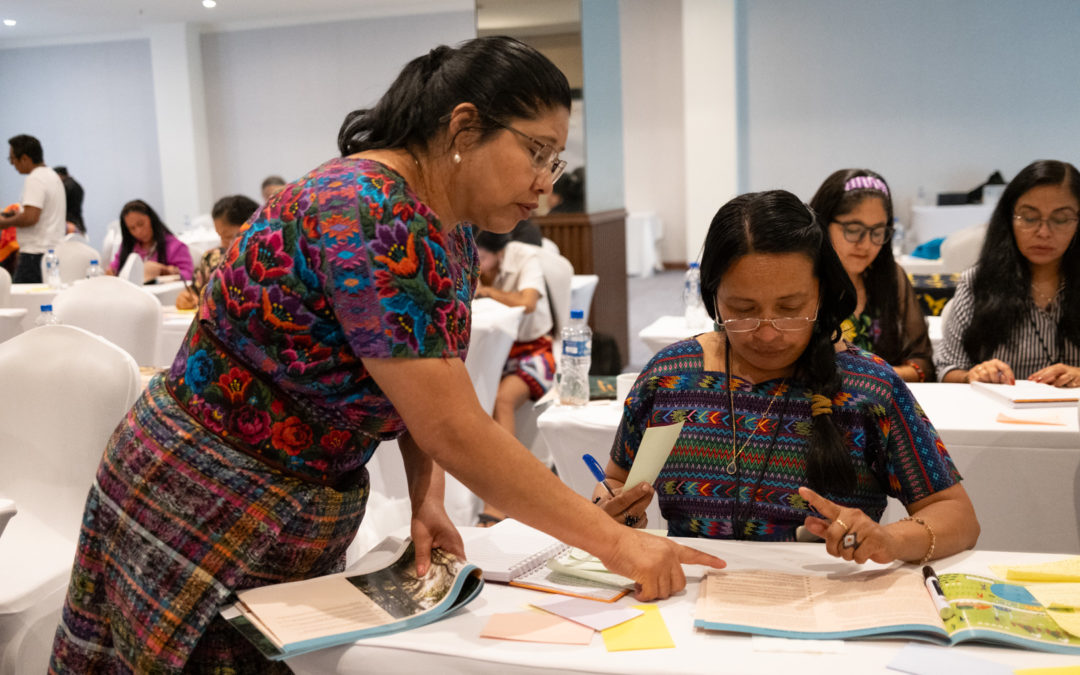The Global Alliance of Territorial Communities (AGCT) made an urgent call to action to world leaders during the Leaders’ Summit on Forests and Climate at COP27, being held in Sharm El Sheikh, Egypt.
“The most important thing we had was time, and we have already lost it. That is why today I come to tell you: enough of agreements, declarations and commitments that remain in the cloud of global events such as the COP and do not land in the territories, where change is really made,” said Levi Sucre, Coordinator of the Mesoamerican Alliance of Peoples and Forests (AMPB) and Co-Chair of the GATC.
The Leaders’ Summit on Forests and Climate takes place in the framework of the World Leaders’ Summit and brings together ambitious governments, companies, financial actors and non-state leaders to increase ambition on forests and land use. The event addresses four themes: delivering on the Glasgow commitments; restoration in Africa; transforming the financial system; and accelerating forest finance.
“Today we come to tell you that while at the COPs they gathered to warn us that the climate was going to change, the climate has already changed. And those of us who see the impacts of that climate change are us. Those of us who suffer the impacts have also proposed solutions and those solutions have been backed by science”. – Levi Sucre
The GATC calls for concrete actions to protect the rights of indigenous peoples and local communities as the only way to urgently protect ecosystems as needed to combat climate change, biodiversity loss and the emergence of future pandemics.
To do so, the Alliance proposes to open avenues for dialogue and collaboration with governments, multilateral agencies and donors.
“Today I want to call on you to work with us: the communities that contribute the most to the fight against climate change, the ones that receive the most of its direct impacts, and the ones that receive the least climate finance. Without us, there is no future.” – Levi Sucre
A call from science
Despite growing recognition of the role of indigenous and local communities as stewards of nature, relevant national legislation is weak or non-existent, exposing them to ever-increasing dangers. While governments negotiate at the COP in Sharm el Sheikh, it is estimated that 14 indigenous defenders will be killed for protecting Mother Earth.
On top of that, some of the solutions countries are putting on the table also threaten to harm the biodiversity-rich forests that these communities protect around the world. A new study by Melbourne Climate Futures at the University of Melbourne estimates that countries need, between them, a total of 1.2 billion hectares of land to deliver on the promises made in their official climate plans. Such dangerous reliance on land-based methods of carbon sequestration would gobble up much of our ancestral lands, the very lands we desperately need for food production and nature protection. It is simply not feasible to plant trees to escape climate catastrophe; there is not enough land. Instead, existing forests need to be protected and restored, and that can only be done with indigenous peoples and local communities.
An overwhelming body of evidence shows that ecosystems thrive and nature is in balance when indigenous peoples and local communities have secure tenure over their traditional lands. Scientists who warned the world in 2019 that one million species are at risk of extinction now say that sustainable use of wild species requires strengthening indigenous peoples’ land rights and harnessing our wisdom.
Despite the enormous efforts of allies in the cause of indigenous peoples and local communities, little funding actually reaches our communities: less than 1% of all funds allocated to protect the environment. Long-standing bureaucratic systems and beliefs about our capabilities prevent us from accessing the climate funds we are capable of managing for the benefit of all. We are the guardians of humanity’s future and we need all the support that is available to keep tomorrow’s hope alive.
In the words of the IPCC, rated “very high confidence” in a 2022 report and quoted in the new global study released today, “Support for indigenous self-determination, recognition of indigenous peoples’ rights and support for adaptation based on indigenous knowledge are critical to reducing climate change risks and achieving effective adaptation (very high confidence).”
In all these fields of scientific research, the contributions of indigenous peoples and local communities, traditional knowledge and the recognition of territorial rights are mentioned. This is why GATC calls on politicians, funders, decision-makers, journalists and advisors to listen to science. There is abundant evidence and studies showing that working with indigenous peoples and local communities is the only way to keep hope alive for humanity’s tomorrow.
About the Global Alliance of Territorial Communities
The Global Alliance of Territorial Communities is a political platform of indigenous peoples and local communities united to defend Mother Earth for the present and future benefit of all humanity. It guarantees its legitimacy and representativeness through democratic processes, ranging from the community to the plurinational level.
The alliance represents 35 million people living in forest territories in 24 countries in Asia, Africa and Latin America, defenders of more than 958 million hectares of land.
The five member organizations are the Indonesian Alliance of Indigenous Peoples of the Archipelago (AMAN); the Mesoamerican Alliance of Peoples and Forests (AMPB); the Articulation of Indigenous Peoples of Brazil (APIB); the Coordinating Body of Indigenous Organizations of the Amazon Basin (COICA); and the Network of Indigenous and Local Peoples for the Sustainable Management of Forest Ecosystems in Central Africa (REPALEAC).



